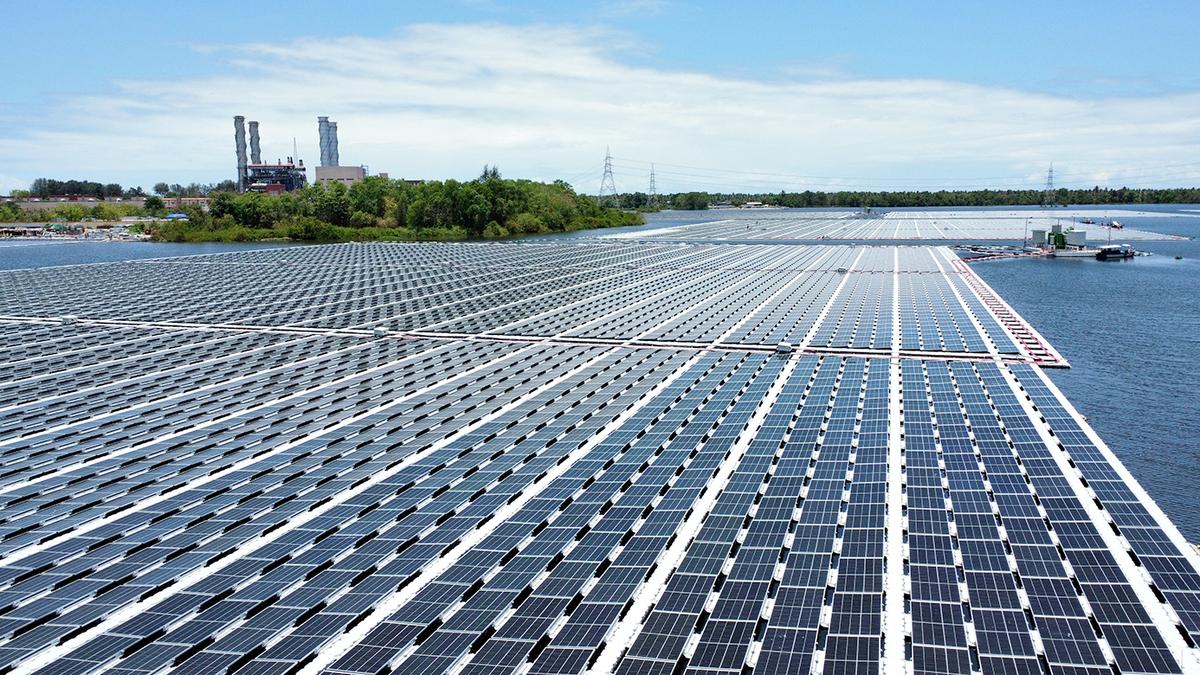
Floating solar power plant at NTPC Kayamkulam unit.
| Photo Credit: File photo
The State government is putting in place a three-tier system for the smooth implementation of floating solar power plants in waterbodies across the State, including reservoirs, backwaters and water-filled quarries.
Responsibilities such as identification of potential sites, creation of ‘land banks,’ providing clearances and approvals and monitoring the progress of projects will be shared among a high-level committee, an empowered committee and district-level committees, a Power department order said in an August 1 order.
The panels, meant to ensure “effective implementation,” have been constituted in line with the ‘Guidelines for the Installation of Floating Solar Plants’ approved earlier this year, the Power department said.
The high-level committee is headed by the Chief Secretary. Its responsibilities include fixing the lease rents, land allocation, clearances and approvals and measures to attract developers. The Additional Chief Secretaries for Power, Finance, Water Resources and Forest; Secretaries for Environment, Agriculture, Fisheries, Local Self-Government and Revenue; and the Chief Executive Officer of the Agency for New and Renewable Energy Research and Technology (Anert) are the members of this committee.
District-level committees will create land banks of potential sites for development. These committees, headed by District Collectors, can also propose suitable sites owned by government agencies or private lands for developing floating solar projects.
The empowered committee, which is chaired by the Additional Chief Secretary (Power), is tasked with reviewing the technical aspects of each project, including the suitability of the technology to a given region. It will also identify potential sites and monitor the progress of the projects.
The State Cabinet had cleared the ‘Guidelines on Development of Floating Solar Power Plants’ in February this year. Among other things, they envision the creation of district-level ‘banks’ of potential sites and a single-window system for speedy implementation. The guidelines, which complement the Solar Energy Policy of the State, are designed to help Kerala fully tap the potential of reservoirs, backwaters and even water-filled quarries in ‘hosting’ floating solar projects.
Published – August 03, 2025 04:34 pm IST


